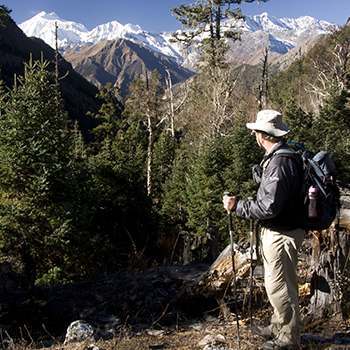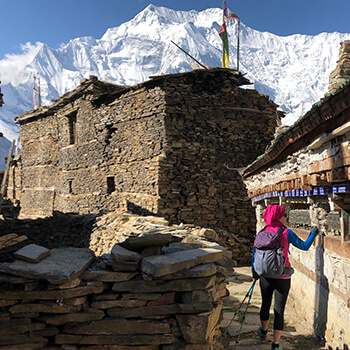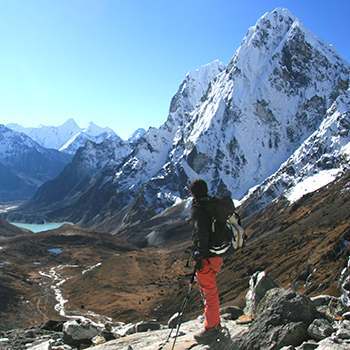The Great Himalaya Trail is proud to be a signatory of the Glasgow Declaration on Climate Action in Tourism.
As a signatory of the Glasgow Declaration, we commit to deliver plans aligned with the pathways to cut tourism emissions in half over the next decade and reach Net Zero emissions as soon as possible before 2050. commits to:
- Support the global commitment to halve emissions by 2030 and reach Net Zero as soon as possible before 2050;
- Deliver climate action plans within 12 months from becoming a signatory (or updating existing plans), and begin implementing them;
- Align plans with the five pathways of the Declaration (Measure, Decarbonise, Regenerate, Collaborate, Finance) to accelerate and co-ordinate climate action in tourism;
- Report publicly on an annual basis on progress against interim and long-term targets, as well as on actions being taken;
- Work in a collaborative spirit, sharing good practices and solutions, and disseminating information to encourage additional organisations to become signatories and supporting one another to reach targets as quickly as possible.
What is the Glasgow Declaration?
The Glasgow Declaration on Climate Action in Tourism unites travel and tourism behind a common set of pathways for climate action, aligning the sector with global commitments and catalysing collaborative solutions to the many challenges facing businesses and destinations globally. The Glasgow Declaration encourages the acceleration of climate action in tourism by securing commitments to reduce emissions in tourism by at least 50% over the next decade and achieve Net Zero as soon as possible before 2050.
The Glasgow Declaration on Climate Action in Tourism brings together the latest research and global expertise to galvanise climate action. It will be hosted within the One Planet Sustainable Tourism Programme’s website, supported by Recommended Actions for tourism stakeholders across the world to consider as part of their action planning, alongside other resources.
As the declaration states: “A just transition to Net Zero before 2050 will only be possible if tourism’s recovery accelerates the adoption of sustainable consumption and production, and redefines our future success to consider not only economic value but rather the regeneration of ecosystems, biodiversity and communities.”
The need for a globally consistent approach for climate action in tourism has been made clear, notably through research into CO2 emissions carried out by UNWTO/ITF and released at the UNFCCC COP25 in December 2019. This showed that transport-related emissions from tourism were forecast to increase by 25% by 2030 from 2016 levels, against the current ambition scenario.
In 2020, the One Planet Vision for a responsible recovery of the tourism sector was adopted with the aim of emerging from the COVID-19 crisis both stronger and more sustainable. Climate action is a central element of the Vision, which calls for monitoring and reporting CO2 emissions from tourism, promoting the introduction of science-based targets, accelerating the decarbonisation of tourism operations, and engaging the tourism sector in carbon removal.





What is the One Planet network Sustainable Tourism Programme?
The One Planet Sustainable Tourism Programme has the overall objective to enhance the sustainable development impacts of the tourism sector by 2030, by developing, promoting and scaling up sustainable consumption and production practices that boost the efficient use of natural resources while producing less waste and addressing the challenges of climate change, loss of biodiversity and pollution. The Sustainable Tourism Programme is part of the One Planet network, a multi-stakeholder partnership to implement SDG 12 on Sustainable Consumption and Production.
More Info: https://www.oneplanetnetwork.org/programmes/sustainable-tourism
For more information please Get in Touch with us!













